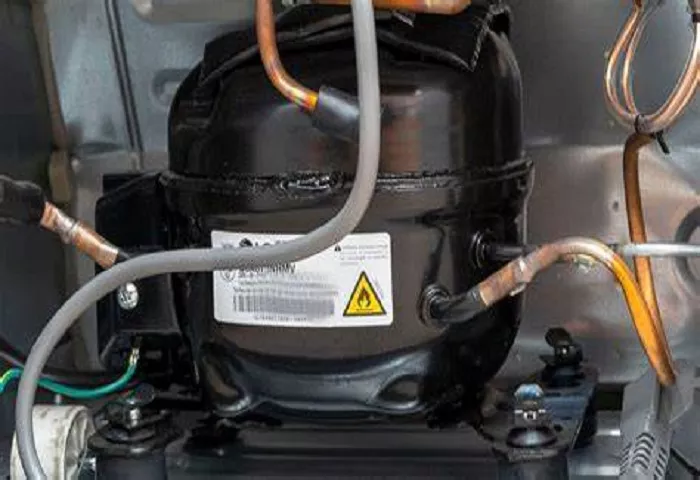The compressor is the heart of a refrigerator, responsible for circulating refrigerant and maintaining the cooling cycle. When it fails, the entire refrigeration system stops working, leading to food spoilage and costly repairs. Understanding why compressors fail is crucial for technicians, engineers, and even consumers who want to extend their appliance’s lifespan.
Electrical Failures
Voltage Fluctuations and Power Surges
Refrigerator compressors rely on stable voltage to operate efficiently. Power surges, frequent voltage fluctuations, or incorrect voltage supply can damage the compressor’s motor windings.
- Overvoltage: Excess voltage increases current flow, overheating the motor.
- Undervoltage: Low voltage forces the compressor to work harder, leading to overheating and premature failure.
- Solution: Use a voltage stabilizer or surge protector to regulate power input.
Start Relay and Capacitor Issues
- The compressor may hum but not start, leading to overheating.
- Repeated failed start attempts can burn out the motor.
- Solution: Replace faulty relays and capacitors promptly.
Short-Circuited Windings
- Moisture ingress
- Insulation breakdown from overheating
- Manufacturing defects
A short-circuited compressor often trips the circuit breaker and requires replacement.
Mechanical Failures
Lack of Lubrication
- Oil breakdown: Over time, refrigerant contamination degrades oil quality.
- Oil starvation: Low oil levels due to leaks or improper installation cause metal-on-metal wear.
- Solution: Ensure proper refrigerant charge and check for oil leaks during servicing.
Refrigerant Leaks and Improper Charge
- Low refrigerant: The compressor runs continuously, overheating.
- Overcharged system: Excess refrigerant causes liquid slugging (refrigerant entering the compressor in liquid form), damaging pistons and valves.
- Solution: Detect and repair leaks, then recharge refrigerant to manufacturer specifications.
Compressor Valve Failure
- Wear and tear (common in older units)
- Carbon deposits from burnt oil
- Physical damage due to liquid slugging
Symptoms include reduced cooling and unusual knocking noises.
Thermal and Operational Stress
Overheating
- Dirty condenser coils (restricted airflow)
- Poor ventilation (refrigerator placed too close to walls)
- Frequent door openings (increased workload)
- Solution: Clean coils regularly, ensure proper airflow, and avoid overloading the fridge.
Short Cycling
- Faulty thermostat (incorrect temperature readings)
- Defrost system failure (ice buildup on evaporator coils)
- Solution: Replace malfunctioning thermostats and ensure defrost systems work correctly.
Long Continuous Run Times
- Worn door seals (letting warm air in)
- Excessive ambient temperature (hot kitchen environments)
- Solution: Replace damaged gaskets and keep the fridge in a cool location.
Manufacturing Defects and Age
Poor-Quality Components
- Low-grade materials
- Faulty assembly
- Solution: Choose refrigerators from reputable brands with reliable warranties.
Natural Wear and Tear
- Average lifespan: 10–15 years
- Symptoms of aging: Loud noises, inefficient cooling, frequent repairs
- Solution: Replace the refrigerator if repairs exceed its value.
Conclusion
Refrigerator compressor failures result from electrical, mechanical, thermal, and maintenance-related issues. Understanding these causes helps in preventing costly breakdowns. By following these best practices, users and technicians can maximize refrigerator efficiency and avoid premature compressor failure.

